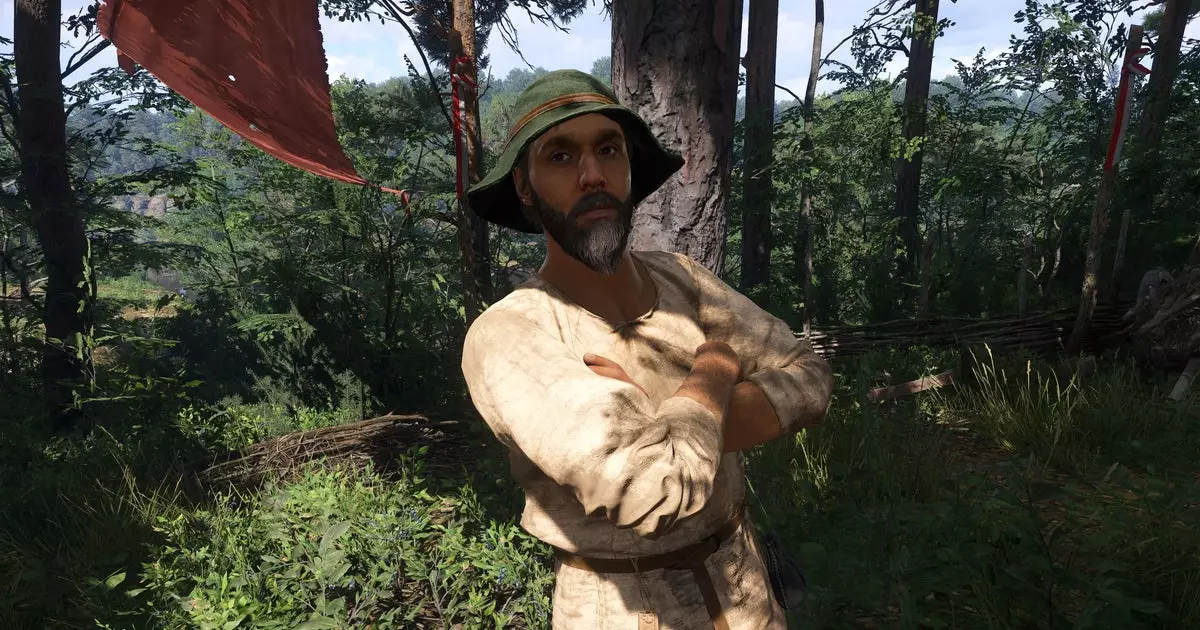What would we do if we encountered the concept of an infinite shoe? The whimsical nature of this question bridges the gap between the imaginative realms of gaming and the structured design elements that keep players engaged. At first glance, the idea of an endless supply of footwear may seem trivial, perhaps even absurd. However, it raises deeper questions concerning the way gamers interact with virtual worlds—a blend of fantasy and realism that often leads to a peculiar dichotomy. Players crave authentic experiences, yet they also desire to circumvent the mundane obstacles that can accompany them.
This tension between immersive authenticity and the convenience of a cinematic escape reveals a profound paradox within the gaming community: we adore settings that resemble our lived reality, but we also yearn for the freedom to manipulate that reality to suit our desires. In the context of games like Kingdom Come: Deliverance 2, this internal conflict is evident through the types of mods that emerge within the community.
Modding has become an integral part of the RPG landscape, allowing users to customize their gaming experiences in ways that developers might not have anticipated. In the case of Kingdom Come: Deliverance 2, the most downloaded mods tell a compelling story of player preferences. The current iteration reveals a longing for efficiency rather than realism. Infinite saving and instant herb collection mods symbolize this trend; players crave the thrill of survival without the arduous grind that often saps enjoyment from the experience.
The question arises: Does this suggest that the community yearns for an escape into a beautifully crafted world, or does it reflect a dissatisfaction with its inherent challenges? On the surface, these quality-of-life modifications appear to soften the game’s harsh realities, enchanting players who might otherwise feel burdened by them. The ultimate irony, though, is that Kingdom Come: Deliverance is celebrated for its immersive realism—a quality that may infringe upon the very enjoyment it professes to celebrate.
Among the most humorous mods available is one that grants infinite shoe durability, a whimsical twist that raises several eyebrows. The notion of never having to repair one’s footwear while traversing the rugged terrain of medieval Bohemia strikes a certain comedic chord. It is a concept that epitomizes the blurring line between immersion and ease. Players may initially engage with the world to experience its grit; after all, those frictive details are what give the game its richness. Yet, the same players are delighted by the ability to sidestep such challenges.
This comedy is a reminder that gaming, much like life, often revels in paradoxes. The desire for infinite items might derive from the frustration of repeated failures and setbacks—elements that gaming enthusiasts purportedly embrace. If nothing else, the humorous imagination surrounding an infinite cobbler who could provide Henry with endless shoes is a testament to the creativity that players bring to the medium. It reveals a light-hearted camaraderie among gamers, showcasing how they connect over shared frustrations and absurdities.
As modding communities continue to evolve, it is worth pondering how they will impact future game design. The success of popular mods demonstrates a clear player feedback loop; gamers express their dissatisfaction or reshape their experiences creatively. Developers are increasingly recognizing the need to communicate with their audiences, incorporating player desires into games without sacrificing the core principles that make them enjoyable.
Ultimately, the fascination with concepts like the infinite shoe serves as a catalyst for deeper conversations about what players want from their experiences. Do they seek gritty realism adorned with the convenience of fantasy? Or is it the journey through challenge that makes the infinite possibilities of gaming so alluring in the first place? Whatever the answer may be, embracing the humor, creativity, and curiosity surrounding these paradoxes lays the groundwork for engaging storytelling and immersive world-building in gaming. The future promises not just more mods and more games, but a deeper understanding of what it truly means to play.


Leave a Reply